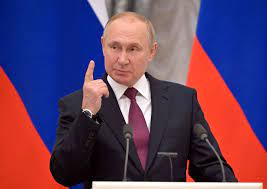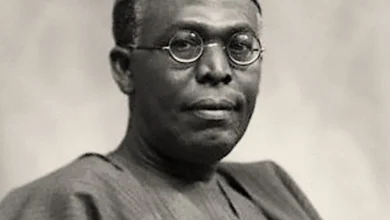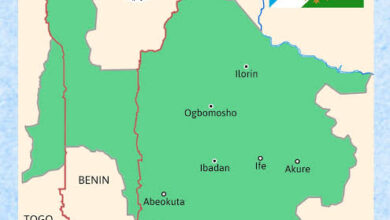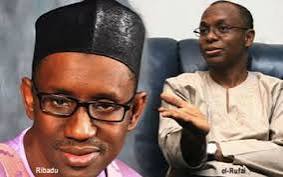Kwara in Flames: How Terrorists take over communities

When Kings Cry and Citizens Become Ghosts
By Prince Salako Lukman Olamilekan
In the history of nations, there comes a time when silence becomes betrayal, when denial becomes blood on the lips of the leaders, and when propaganda is more deadly than bullets. That time has come upon Kwara State. From the voice note attributed to Oba Isiaka Sadiku Lawal Ariwajoye Kariola I, Onisagbe of Sagbe, circulating on WhatsApp, the lamentation of a king has exposed what many already know but the government prefers to bury under polished lies: Kwara communities are burning, our people are fleeing, and entire towns have become ghost villages.
Ghost Communities and Graves in the Bushes
Ologomon, Ajegunle, Iwo-Agbon, Alabe Idera, Owode, Alasoro, Alamon, Bankole, Sagbe — the list reads like a register of the dead. Villages where children once laughed now echo only with the cries of widows. It was reported that the Igbaja vigilante leader was killed, the chief hunter of Oke-Oke Oluode was slain, and many others were cut down in their prime. Hundreds of cows were rustled, homes ransacked, properties looted, women and men kidnapped, and scores left with injuries that will scar them forever.
And yet, no army presence—only the thin shadow of the police, overwhelmed, under-armed, and outnumbered. This is not just Kwara South; Kwara North is bleeding too: Edu, Patigi, Baruten, Kaiama, Ifelodun, even parts of Oke-Ero. Bandits march in, slaughter at will, and leave behind ashes. Lata Nna, Lema, Gamalegi—new additions to the map of horror.
Citizens as Pawns: Worthless Beyond Elections
“Citizens are valueless unless they become electorates.” These words cut like a knife because they are true. When elections approach, politicians parade themselves as messiahs, kissing babies in daylight while sharpening daggers at night. But after the ink dries on our thumbprints, we become expendable. Our tears are no longer headlines; our blood is no longer currency; our cries are drowned by the sound of political drums.
Legislators as Puppets and Media in Chains
The legislative arm, once heralded as the people’s voice, is now a muffled shadow. A weak legislature that tucked its tail when the State Government carpeted Freedom of Speech Bill. The media, the watchdog of democracy, has been chained. Reporters are silenced, editors coerced, and newsrooms threatened. What should be breaking news is reduced to whispers, because “the fear of the unknown” has caged the truth.
State-owned media, instead of amplifying the pain of the people, have become tools of oppression. Bandits sack communities, yet heavily armed men are brought in days later, not to protect the people but to shoot five-minute propaganda videos—make-believe documentaries to call the truth a lie. This is politics at its most poisonous.
Opposition’s Empty Rhetoric and Opportunists’ Dance on Graves
The opposition, instead of rising to the occasion, is politicking with insecurity. Empty promises are thrown like breadcrumbs to starving birds. “We will tackle insecurity,” they chant. But the people ask: What have you done before? Where is the evidence of your capacity? The opportunists smell blood in the water, using banditry as a ladder to power, mixing fact with fiction until truth itself becomes hostage.
A Governor’s Body Language of Indifference
The state government is a sleeping giant—proactive only in rhetoric, reactive in action. One wonders: is the lethargy because the flames are yet to reach Kwara Central? Is human life measured by geography? Should Edu, Kaima, Patigi, Baruten, Ifelodun, and Oke-Ero be written off simply because they lie outside the power zone? Leadership without empathy is tyranny in disguise.
Party Loyalists and Gullible Followers
To the gullible followers of the ruling party, here is the bitter truth: your fellow party members were also victims. Bandits did not check party cards before pulling triggers. What will you use to campaign in these broken towns? Empty slogans? Billboards plastered over graves? Citizens displaced, livelihoods destroyed, yet the government offers silence and indifference. The same government that compensates fire and flood victims turns away from families ravaged by bullets and machetes. The trauma of banditry is eternal; no relief fund can wash away blood.
Security is Everyone’s Responsibility — But Leadership Matters
Yes, security is everyone’s responsibility, but when the shepherd sleeps, the flock scatters. Citizens can organize vigilantes, but without state backing, they become cannon fodder. Community self-defense cannot replace a structured and committed government response. As the Yoruba say, “Eni tí kò ní agbára kì í mọ̀kanjúwa” (He who has no strength should not pretend to be brave). The people cannot keep pretending while leaders abdicate responsibility.
Kings, Politicians, and the Lessons of History
To the kings, politicians, and so-called emperors of today: know this—power is not eternal. A king today is dust tomorrow. Pharaoh is remembered, but not for his crown; Prophet Isa (Jesus) is remembered, but not for palaces; Prophet Muhammad is remembered, but not for riches. History will not ask how many cars you drove; it will ask how many lives you saved.
A hundred years ago, those who ruled did not foresee your coming. A hundred years from now, you will not foresee who sits in your seat. Power is borrowed; it is never owned. Eat the meat carelessly today, and your children may be forced to chew bones tomorrow.
When Institutions Become Slaves
Our lawmakers have become toys in the hands of the executive, parroting orders instead of protecting constituents. Local government chairmen are slaves in their own domains, stripped of independence and reduced to errand boys. All in the name of loyalty to party lines, all because they rode to power not by merit but by manipulation.
Conclusion: Enough is Enough
Enough is enough. If development cannot circulate in this administration, at least do not allow insecurity to erase the little progress brought through community effort. We are tired of lies dressed as policies, tired of leaders who weep crocodile tears in public but feast on the people’s pain in private.
Let it be known: Kwara bleeds, and history is watching. The citizens will not forget; the graves will not forgive.
As Chinua Achebe once wrote, “A man who makes trouble for others is also making it for himself.” To the leaders of Kwara State, the clock is ticking. Will you be remembered as saviour or as scavengers who dined while their people died?





